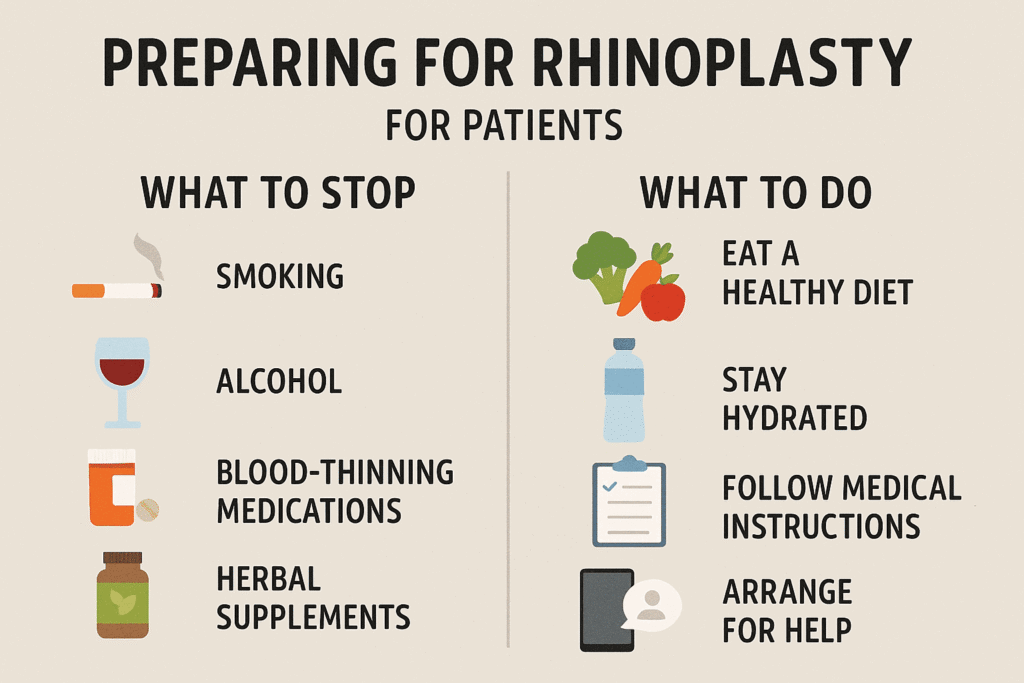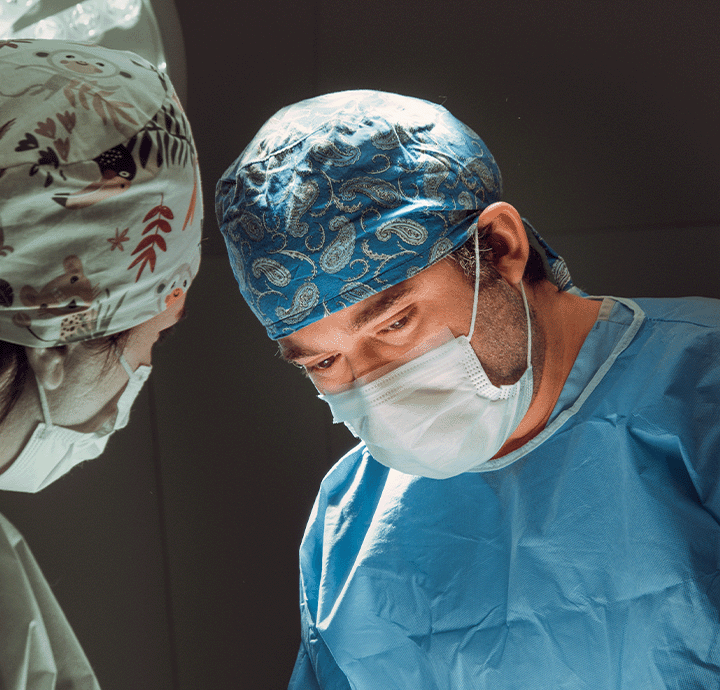
Preparing for Rhinoplasty Guide in 10 Steps
Undergoing rhinoplasty is a significant step toward improving both your appearance and your breathing. While the surgery itself is important, preparation is equally vital. Being well-prepared can reduce complications, shorten recovery time, and increase your overall satisfaction with the results. In this guide, we share the most essential things you should do before your nose surgery.
1. Schedule All Required Medical Tests
Before your operation, your surgeon will likely request blood work, ECG, and possibly imaging like a CT scan. These ensure you are in good health and can safely undergo anesthesia. Always disclose your full medical history, allergies, and previous surgeries during consultation.
2. Avoid Certain Medications and Supplements
Avoid blood-thinning medications like aspirin, ibuprofen, or any herbal supplements such as ginkgo biloba and vitamin E at least two weeks prior to surgery. These can increase the risk of bleeding during and after the procedure.
3. Stop Smoking and Alcohol Consumption
Smoking reduces oxygen in your blood and restricts healing, while alcohol can cause dehydration and complications with anesthesia. You should stop both at least 2–3 weeks before your rhinoplasty.
4. Maintain a Healthy Diet and Hydration
Consume plenty of protein, fruits, and vegetables to build your body’s defenses. Stay hydrated with 2–3 liters of water daily. Avoid salty and spicy foods which can cause inflammation and bloating. Try to consume pineapple or parsley tea and don’t stop eating after surgery.
Use of Supplements & Medications
- Studies show that enzymes like bromelain can significantly reduce bruising and bleeding after rhinoplasty. For example, this randomized clinical trial confirms its effectiveness.
- A randomized trial comparing arnica cream versus corticosteroids found that arnica users experienced significantly reduced postoperative swelling, making it a valuable, natural adjunct after rhinoplasty. Refer to Totonchi & Guyuron’s 2007 study.
5. Organize Your Post-Surgery Logistics
Plan for someone to accompany you home or hotel after surgery and stay with you for the first 24–48 hours. Prepare your home with essentials like extra pillows, cold packs, and soft meals to make your recovery easier.
6. Get Mentally Prepared
It’s natural to feel anxious. Educate yourself about the procedure and set realistic expectations. Trust your surgeon and follow their pre-op instructions closely. Staying calm and positive helps the entire process.
7. Avoid Skin Treatments Before Rhinoplasty
Don’t undergo facials, waxing, or chemical peels near the surgery date. Your skin should be clean and free from irritation to avoid post-op infections.
8. Sleep Well and Rest
Make sure you’re getting adequate rest in the days leading up to surgery. Avoid late nights, reduce stress, and support your immune system by keeping your schedule light and manageable.
9. Prepare a Day-of-Surgery Bag
Bring comfortable clothing (preferably zip-up), your ID, medical documents, and a lip balm. Avoid wearing makeup, contact lenses, or jewelry on the day of surgery. Any metal attached to your body must be removed. If you have polish on your nails or if you have gel nails, they must be removed before rhinoplaty.
10. Follow a Nutrition Plan
Consider incorporating vitamin C, zinc, and antioxidants under your doctor’s guidance. These can aid in tissue repair and boost immunity before your rhinoplasty surgery.
Bonus: Advice for Ethnic and Revision Rhinoplasty Patients
Patients undergoing ethnic rhinoplasty or revision rhinoplasty may require extra preparation depending on graft usage, scar tissue, or donor sites. For example, those needing rib cartilage may begin using doctor-recommended scar creams and protect the donor site area before or after surgery.
Final Thoughts
Proper preparation not only supports a safe surgery but also boosts your recovery success. Follow your surgeon’s checklist carefully, ask questions when in doubt, and enter your rhinoplasty day with confidence and clarity. Check these tips to be ready for post-op rhinoplasty process.
Watch: Rhinoplasty Experience with Dr. Fatih Hanege
Frequently Asked Questions (FAQ)
How early should I start preparing for rhinoplasty?
Ideally, you should begin 3–4 weeks in advance to adjust habits, medications, and lifestyle.
Can I drink coffee before surgery?
It’s best to avoid caffeine 24 hours before your surgery as it can increase dehydration and blood pressure.
Is fasting required before rhinoplasty?
Yes, you’ll be asked not to eat or drink anything 6–8 hours before surgery.
Should I stop skincare products before surgery?
Yes, avoid retinoids, acids, or exfoliants at least 7 days before surgery to reduce irritation.
What kind of clothes should I wear on the day?
Wear loose, comfortable clothes with a front zipper or buttons to avoid disturbing the bandage post-op.


